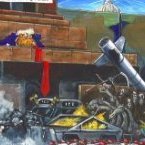West facing 'authoritarian' alliance, says Nato chief
-
Recently Browsing 0 members
- No registered users viewing this page.
-
Topics
-
-
Popular Contributors
-
-
Latest posts...
-
63
Retirement visa using the monthly income
Thanks for that information. Yes, I would plan on doing it around the same day every month. So as long as the transfer shows as being from outside of Thailand, that's all that is necessary. It could be from any bank, from any account, or with any transfer service like Wise or a bank wire or ACH. One last question: The last regulation I saw from Immigration was a minimum amount of 65,000 baht each month. What role does the exchange rate play in the monthly transfer? I would plan on transferring 70,000 just to be on the safe side. Thanks again for your help. -
-
357
Road Rage (Foreigner Style)
Again, not so. Of course the horn can also be used as an audible warning to motorcycle riders or indeed car drivers who are driving eratically. Also if they are going the wrong way it is perfectly permissible to use the horn. Shocking how many people of an advanced age don't even know the most basic rules of traffic on AN.. -
1
Visa Agent in Chiang Mai
You cannot renew a visa, you mean extend your permission to stay with retirement as the reason. Are you saying the current extension has ran out and you are on overstay, If not why can't you book an appointment? -
26
Ukraine is winning the war
The gas shortage is widespread in Russia's east and the more Ukraine destroys the more it spreads Don't forget the coming Flamingos too. -
357
Road Rage (Foreigner Style)
Which is illegal, So what? It is not up to you and your horn to enforce traffic laws
-
-
Popular in The Pub



.thumb.jpg.b54783ad387f65d779e04f535fcfeee9.jpg)






(1).thumb.jpg.2a9a5717e089998d9b4fa1ecc5d60fed.jpg)


Recommended Posts
Create an account or sign in to comment
You need to be a member in order to leave a comment
Create an account
Sign up for a new account in our community. It's easy!
Register a new accountSign in
Already have an account? Sign in here.
Sign In Now